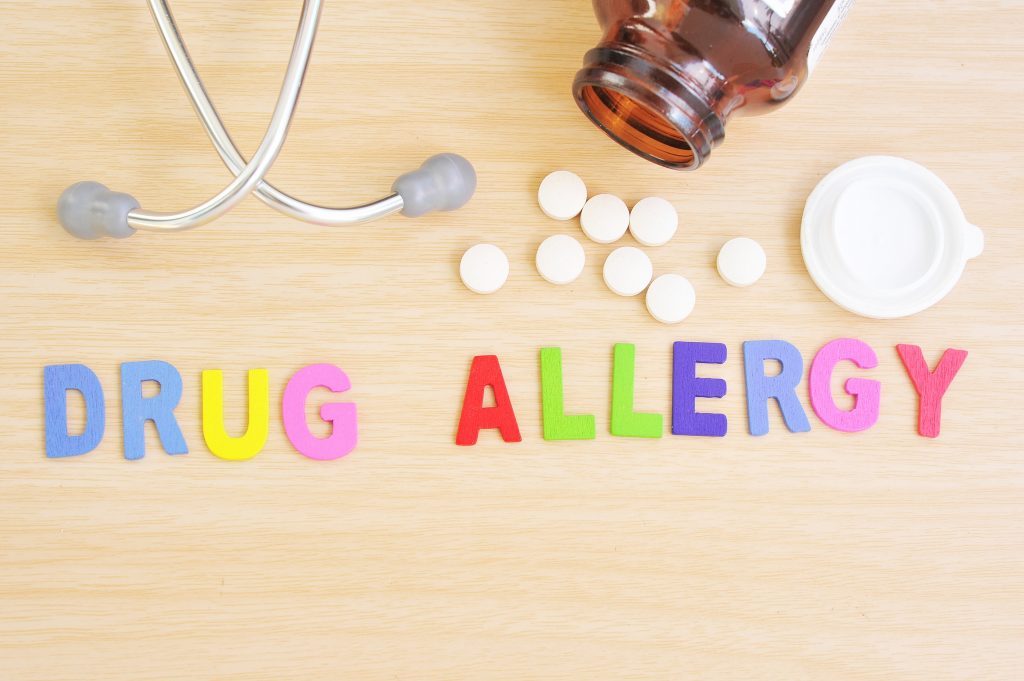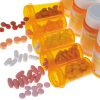- Empty cart.
- Continue Shopping
The Importance of Understanding Drug Allergies

Drug allergies are a critical consideration in healthcare that can significantly impact an individual’s well-being. Recognizing and comprehending drug allergies is essential for both healthcare providers and patients. In this guide, we will delve into the significance of understanding drug allergies, from their potential consequences to how they can be effectively managed for optimal health outcomes.
What Are Drug Allergies?
1. Defining Drug Allergies
A drug allergy occurs when the immune system reacts abnormally to a medication. It perceives the drug as a harmful substance, leading to an allergic reaction.
2. Types of Allergic Reactions
Drug allergies can manifest in various ways, ranging from mild skin rashes and hives to more severe reactions like difficulty breathing and anaphylaxis.
Common Drug Allergens
1. Penicillin and Antibiotics
Penicillin and other antibiotics are frequent culprits of drug allergies. Allergic reactions to antibiotics can range from mild skin rashes to severe anaphylactic reactions.
2. Nonsteroidal Anti-Inflammatory Drugs (NSAIDs)
NSAIDs like aspirin and ibuprofen can lead to allergic reactions, particularly in individuals with a history of asthma.
3. Sulfa Drugs
Medications containing sulfonamides, including some antibiotics and diuretics, can trigger allergic reactions in susceptible individuals.
The Significance of Allergy Testing
1. Identifying Specific Allergens
Allergy testing, such as skin tests or blood tests, plays a crucial role in pinpointing the specific drugs to which an individual is allergic.
2. Guiding Treatment Decisions
Knowing a patient’s drug allergies is vital for healthcare providers to make informed decisions about treatment options, ensuring they are safe and effective.
Cross-Reactivity and Allergy Alerts
1. Cross-Reactivity with Allergens
Some drugs may trigger allergic reactions in individuals with allergies to related substances. For instance, individuals allergic to penicillin may also be sensitive to cephalosporin antibiotics.
2. Medical Records and Allergy Bracelets
Maintaining accurate medical records and wearing allergy alert bracelets can provide crucial information in emergencies, ensuring appropriate treatment is administered.
Effective Communication with Healthcare Providers
1. Transparent and Open Communication
Informing healthcare providers about any known drug allergies, including the specific reactions experienced, is crucial for safe and effective treatment.
2. Alternative Medication Options
In cases of known drug allergies, healthcare providers can suggest alternative medications that are less likely to cause allergic reactions.
Avoiding Allergen Exposure
1. Reading Labels and Medication Guides
Thoroughly reading labels, instructions, and medication guides can help individuals avoid drugs to which they are allergic.
2. Seeking Medical Advice
If there is uncertainty about a particular medication or its ingredients, consulting a healthcare provider is essential.
Conclusion
Understanding drug allergies is paramount for ensuring safe and effective healthcare. By being aware of common allergens, seeking proper allergy testing, and maintaining open communication with healthcare providers, individuals can take proactive steps to prevent adverse reactions to medications. This knowledge empowers individuals to make informed decisions about their healthcare, ultimately leading to safer and more effective treatment outcomes. Remember, vigilance regarding drug allergies is a cornerstone of responsible and proactive healthcare management.








